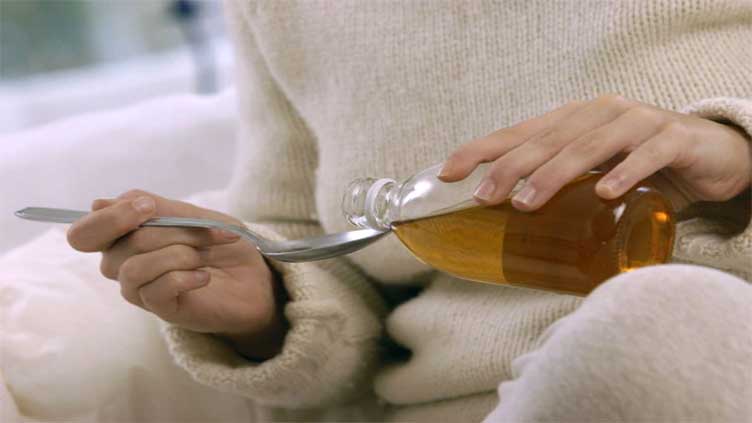Uzbekistan says 18 children die after consuming India-made syrup

Uzbekistan says 18 children die after consuming India-made syrup
NEW DELHI (Reuters) - Uzbekistan s health ministry has said at least 18 children have died after consuming a medicinal syrup manufactured by Indian drugmaker Marion Biotech Pvt Ltd.
The ministry said 18 out of 21 children who took the Doc-1 Max syrup while suffering from an acute respiratory disease died after consuming it. It is marketed on the company s website as a treatment for cold and flu symptoms.
A batch of the syrup contained ethylene glycol, which the ministry said was a toxic substance. The syrup was imported into Uzbekistan by Quramax Medical LLC, the ministry said in its statement released on Tuesday.
It also said the syrup was given to children at home without a doctor s prescription, either by their parents or on the advice of pharmacists, with doses that exceeded the standard dose for children.
It was not immediately clear whether all or any of the children had consumed the suspect batch or had consumed more than the standard dose, or both.
Marion Biotech, Quramax Medical and India s health ministry did not immediately respond to a Reuters request seeking comment. An Indian government source said the health ministry was looking into the matter.
India had on Tuesday launched an inspection of some drug factories across the country to ensure high quality standards.
The Uzbek incident follows a similar one in Gambia, where the deaths of at least 70 children were blamed on cough and cold syrups made by New Delhi based Maiden Pharmaceuticals Ltd. Both India s government and the company have denied the medicines were at fault.
India is known as the "pharmacy of the world" and its pharmaceuticals exports have more than doubled over the past decade to $24.5 billion in the past fiscal year.
The Uzbek health ministry said it had dismissed seven employees for negligence for not analysing the deaths in a timely manner and not taking the necessary measures. It said it had taken disciplinary measures against some "specialists", without specifying what role the specialists had.
It is also withdrawing the Doc-1 Max tablets and syrups from all pharmacies.
"Hong Kong has a sufficient amount of medicine to fight COVID, and healthcare workers have gained rich experience in facing the pandemic," he added.
Lee said his government is aiming to reopen the borders with mainland China by Jan. 15 and was working with authorities over the border to ensure an orderly re-opening.
He said the authorities have been preparing for the scrapping of all restrictions.
"The time is appropriate for us to do this, having prepared for six months to do this," said Lee. "The whole society is preparing for this. We are doing all this according to our local epidemic situation."
Hong Kong s vaccine pass requirement, which was imposed in February and was a must for people to access most venues in Hong Kong, will end from Thursday. Social distancing rules such as a cap on gatherings of more than 12 people in public will also be scrapped from Thursday.
The city has for nearly three years largely followed China s lead in tackling the novel coronavirus, with both places being the last strongholds in adopting a zero-COVID policy.
The removal of the curbs are likely to result in an increase of travellers to the former British colony who have previously shunned it due to strict restrictions.
In an abrupt change of policy, China this month began dismantling the world s strictest COVID regime of lockdowns and extensive testing. The country will stop requiring inbound travellers to go into quarantine from Jan. 8, authorities said this week.
Restrictions on travel between Hong Kong and the mainland were imposed in early 2020. The reopening was postponed several times due to outbreaks in Hong Kong or the mainland.
International passengers arriving in Hong Kong since mid-month are no longer subject to COVID-related movement controls or barred from certain venues, the government announced in December.
Business groups, diplomats and many residents had slammed Hong Kong s COVID-19 rules, saying they threatened its competitiveness and standing as an international financial centre.
The rules have weighed on Hong Kong s economy since early 2020, speeding up an exodus of businesses, expatriates and local families that have left amid a drive by Beijing to more closely control the former British colony.

